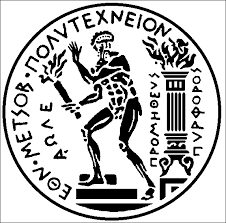210 σ.
(EL)
Από την κοιλάδα του Ρουρ μέχρι το λιμάνι του Αμβούργου και από τα ορυχεία του Goslar μέχρι το Bitterfeld-Dessau, ο γερμανικός χώρος είναι συνυφασμένος με τη βιομηχανική δραστηριότητα. Αυτή υπήρξε καθοριστικός παράγοντας για την ανάπτυξη των πόλεων, τη διαμόρφωση του τοπίου και τη δημιουργία μιας ολόκληρης βιομηχανικής κουλτούρας. Ο βιομηχανικός πολιτισμός και τα κατάλοιπά του αποτελούν μοναδικά μνημεία, καθώς είναι αναπόσπαστα κομμάτια της ιστορίας των τελευταίων 200 χρόνων. Η αξία τους δεν είναι μόνο ιστορική αλλά και χωρική, ως τοπόσημα, αισθητική, ως απόρροια της μεταμοντέρνας κουλτούρας, αρχιτεκτονική και χρηστική, καθώς προσφέρουν πολλές δυνατότητες σε σχέση με την επανάχρησή τους. Μετά την αποβιομηχάνιση από την ανάγκη διαφύλαξης των στοιχείων του παρελθόντος και προστασίας του περιβάλλοντος τα βιομηχανικά κτίρια αξιοποιούνται, ώστε να προσαρμοστούν στη σύγχρονη πραγματικότητα, να δεχτούν ποικίλες λειτουργίες και να αποτελέσουν θύλακες μιας νέας αστικοποίησης. Η αξιοποίηση των βιομηχανικών κελυφών αποτελεί καίριο και λεπτό ζήτημα, καθώς εξαιτίας διάφορων οικονομικών και πολιτικών συμφερόντων οι παρεμβάσεις συχνά έχουν ανεπιθύμητα αποτελέσματα, αδυνατώντας να διαφυλάξουν την ιστορική μνήμη μετατρέποντάς τα απομεινάρια σε ένα μουσειοποιημένο αντικείμενο. Σήμερα όσο ποτέ, υπάρχει η ανάγκη να ενσταλαχτεί η κατάλληλη παιδεία, ώστε να συνειδητοποιήσουν όλοι τα οφέλη της διαφύλαξης και ανάδειξης αυτού του εύθραυστου παρελθόντος.
(EL)
From the Ruhr valley to Hamburg’s harbor and from the mines of Goslar to Bitterfeld-Dessau, the German landscape abounds with industrial activity. It has been a determining factor for urban growth, landscape formation and the creation of industrial culture. The industrial world and its remnants are unique monuments, as they are integral parts of the last 200 years history. Their value is not only historical but also spatial, as landmarks, aesthetical, as an outcome of the postmodern culture, architectural and utilitarian, as they provide a wide range of possibilities for their reuse. In the post deindustrialization era, the abandoned industrial buildings are being reclaimed, due to the needs for preservation of the relics of the past and environmental conservation, so that they can be reappropriated as hosts of contemporary functions and become new clusters for urbanization. The development of old industrial shells is an issue of critical importance facing many difficulties, as due to the presence of several financial and political interests the interventions often have undesirable effects, failing to preserve the historical memory and resulting in the conversion of the remnants into mummified items. Today more than ever, there is the need to instill the proper education so that everybody can realize the benefits of preserving and highlighting such a fragile past.
(EN)
 National Technical University of Athens
National Technical University of Athens

